Please fill out the following information, and RRFC Admissions will contact you to discuss our program offerings:
Issue #248
by Liya Swift
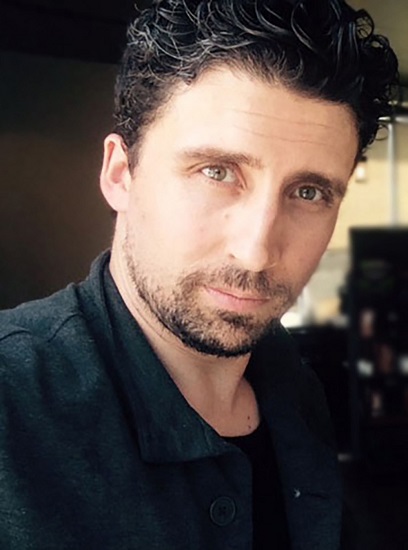
Film Connection 2015 graduate Tyler McGraw (Los Angeles, CA).
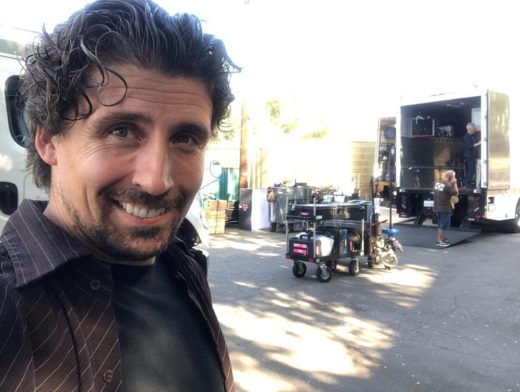
Tyler McGraw on the Paramount Studios lot for ABC Studios production starring John Stamos.
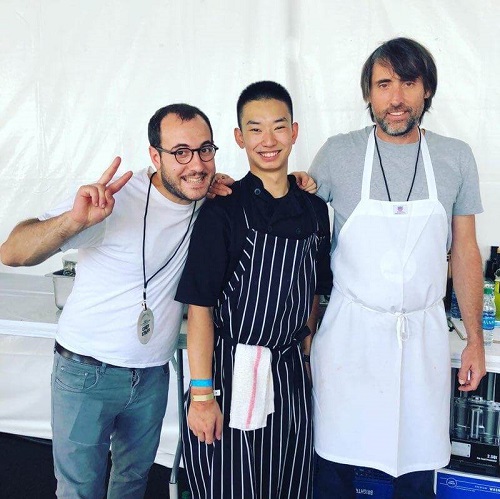
CASA grad Justin Zhao (center) with Chef Iñaki Aizpitarte (right) and sous chef Antonio – just a couple of the chefs he worked with at the Lexus All-Star Chef Classic 2019 (Los Angeles, CA).
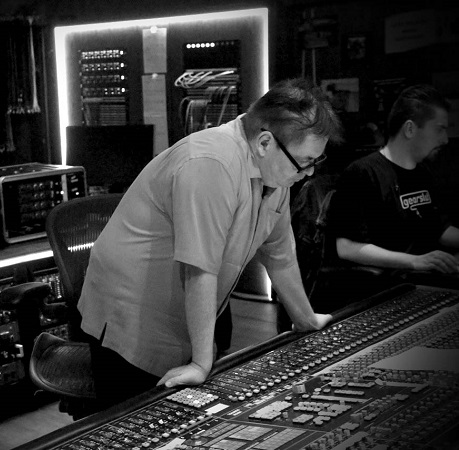
Csaba Petocz in studio.
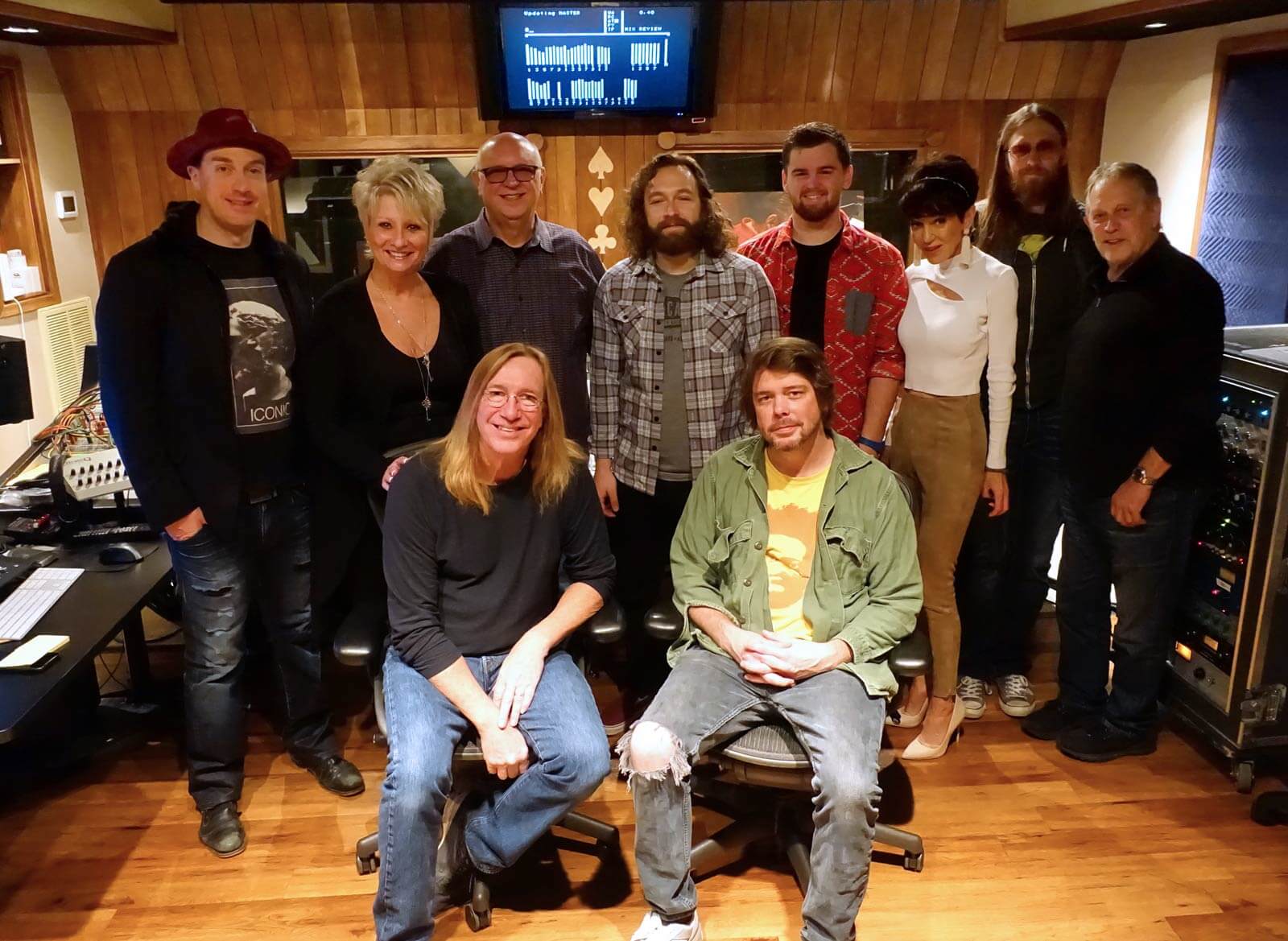 The workshop was attended by Recording Connection for Audio & Music Production graduate Jones Nelson who found it enriching to his production practices. “It’s an incredible experience to come here and get to see how Chuck does things behind the scenes. It was great to see how he’s able to go through and fatten-up vocals and piano and guitar tracks. He gave me a lot to think about, and I’ll be deconstructing a lot of the work I’ve done up to this point and re-thinking some of my habits.”
Recording Connection for Audio Engineering & Music Production student Alec Wingfield remarked, “Getting to spend time with an engineer of such high reputation as Chuck Ainlay was a once-in-a-lifetime experience. It’s something I’ve always dreamed of: getting to pick his brain and understand how he uses his gear and the musical touch he adds to the projects. I think it will help me forge my own identity and vision as an engineer moving forward.”
Recording Connection for Audio Engineering & Music Production student Anthony Vaticalos also took a lot away from the workshop. “I learned a lot about how to interact with the musical elements in the engineering process….Chuck gave us a lot to consider in what to expect in certain scenarios, different techniques to employ, and how to be a great engineer overall. I especially enjoyed getting some hands-on time on the SSL board.”
We send our deep appreciation to all of the professionals who attended and shared their knowledge and memories of Csaba, including Lisa Roy, Csaba’s wife; Roxanne Ricks, Audio-Technica Artist Relations Manager, Chuck Ainlay; Frank Wells; and Todd Tidwell.
The workshop was attended by Recording Connection for Audio & Music Production graduate Jones Nelson who found it enriching to his production practices. “It’s an incredible experience to come here and get to see how Chuck does things behind the scenes. It was great to see how he’s able to go through and fatten-up vocals and piano and guitar tracks. He gave me a lot to think about, and I’ll be deconstructing a lot of the work I’ve done up to this point and re-thinking some of my habits.”
Recording Connection for Audio Engineering & Music Production student Alec Wingfield remarked, “Getting to spend time with an engineer of such high reputation as Chuck Ainlay was a once-in-a-lifetime experience. It’s something I’ve always dreamed of: getting to pick his brain and understand how he uses his gear and the musical touch he adds to the projects. I think it will help me forge my own identity and vision as an engineer moving forward.”
Recording Connection for Audio Engineering & Music Production student Anthony Vaticalos also took a lot away from the workshop. “I learned a lot about how to interact with the musical elements in the engineering process….Chuck gave us a lot to consider in what to expect in certain scenarios, different techniques to employ, and how to be a great engineer overall. I especially enjoyed getting some hands-on time on the SSL board.”
We send our deep appreciation to all of the professionals who attended and shared their knowledge and memories of Csaba, including Lisa Roy, Csaba’s wife; Roxanne Ricks, Audio-Technica Artist Relations Manager, Chuck Ainlay; Frank Wells; and Todd Tidwell.
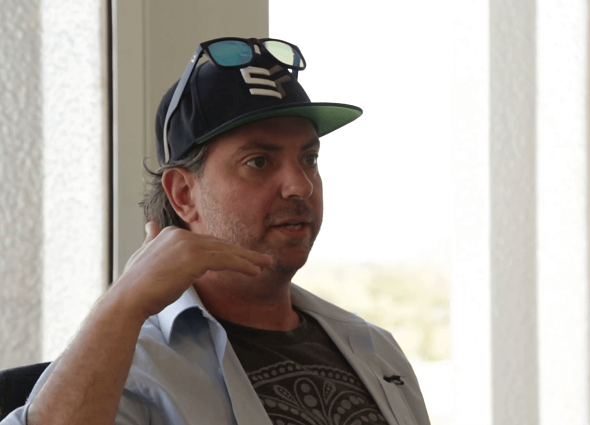
Recording Connection mentor, engineer/producer Nathan Jenkins
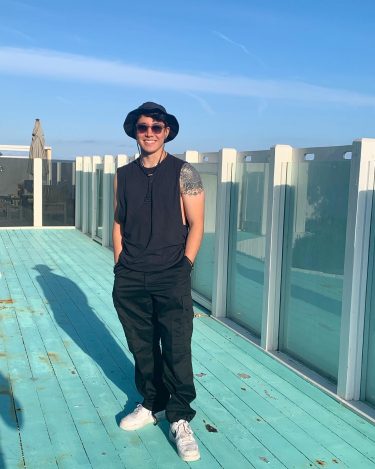
Recording Connection graduate Christian Joy-Ito
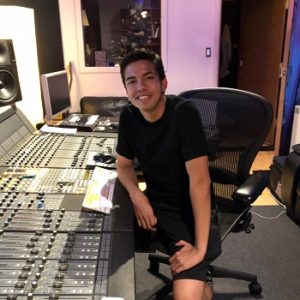
Recording Connection student Miguel Giron
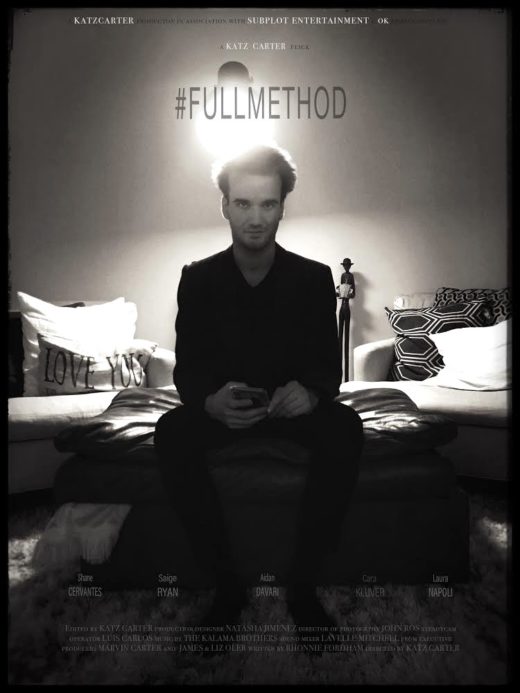 Congratulations to Film Connection for Film Production & Editing graduate Katz Carter on the upcoming premiere of his suspense thriller, happening November 19th in Redlands, CA.
Getting from concept, to production, to release has been nothing short of a life-changing experience for the devoted filmmaker and auteur:
“It has been a long journey but on the 19th all the hard work is paid off with my 1st passion project. With my mentors Daniel & Bayou, the Dream Team directors, I was able to organize and polish my film to be seen in theaters.”
So what’s it about?
Straight out of Katz’s pitch package he says, “A key theme would be the depths to which one goes to attain fame/infamy. Matthew [the lead] has struggled as a working actor, and now that he’s landed a great gig, he’s eager to brag about his success to his old friends. He also sees the party as an opportunity to spark up a romance with his crush Liz…” but something else is afoot.
Learn more about Katz’s trek from concept to completion in the Student Success Story we did on him a few months back.
Congratulations to Film Connection for Film Production & Editing graduate Katz Carter on the upcoming premiere of his suspense thriller, happening November 19th in Redlands, CA.
Getting from concept, to production, to release has been nothing short of a life-changing experience for the devoted filmmaker and auteur:
“It has been a long journey but on the 19th all the hard work is paid off with my 1st passion project. With my mentors Daniel & Bayou, the Dream Team directors, I was able to organize and polish my film to be seen in theaters.”
So what’s it about?
Straight out of Katz’s pitch package he says, “A key theme would be the depths to which one goes to attain fame/infamy. Matthew [the lead] has struggled as a working actor, and now that he’s landed a great gig, he’s eager to brag about his success to his old friends. He also sees the party as an opportunity to spark up a romance with his crush Liz…” but something else is afoot.
Learn more about Katz’s trek from concept to completion in the Student Success Story we did on him a few months back.
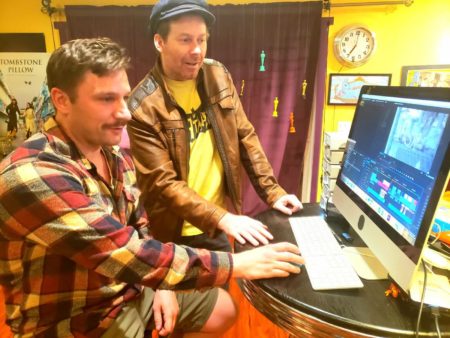 There’s more from another aspiring filmmaker matched with Dream Team Directors! One month into the Film Connection for Film Production & Editing program, Cody Oznowicz (Los Angeles, CA) is enjoying the real-world education he’s getting with the power duo:
“Working with Bayou and Daniel has been an amazing experience so far. Their supportive, no-nonsense approach to teaching has not only made this process fun and easy, but also extremely creatively fulfilling.
Right out the gate, my first assignment was to edit a video that their company would be using to promote an upcoming film on their website and Instagram, wasting absolutely no time creating tangible, legitimate pieces of work to add to my résumé which we have been actively building ever since. The knowledge and skills I’ve built in such a short amount of time from Bayou and Daniel has blown me away. I’m excited for the months ahead.”
Check out one of the trailers Cody’s edited, on Instagram.
BREAKING NEWS: Bayou and Daniel of Dream Team Directors just won the Best Drama Short Film Award at the ICP Entertainment NYC Festival for their film “Tombstone Pillow”! CONGRATULATIONS DREAM TEAM!
Remember, here’s where you get the latest on what RRFC students are doing, so (subscribe).
There’s more from another aspiring filmmaker matched with Dream Team Directors! One month into the Film Connection for Film Production & Editing program, Cody Oznowicz (Los Angeles, CA) is enjoying the real-world education he’s getting with the power duo:
“Working with Bayou and Daniel has been an amazing experience so far. Their supportive, no-nonsense approach to teaching has not only made this process fun and easy, but also extremely creatively fulfilling.
Right out the gate, my first assignment was to edit a video that their company would be using to promote an upcoming film on their website and Instagram, wasting absolutely no time creating tangible, legitimate pieces of work to add to my résumé which we have been actively building ever since. The knowledge and skills I’ve built in such a short amount of time from Bayou and Daniel has blown me away. I’m excited for the months ahead.”
Check out one of the trailers Cody’s edited, on Instagram.
BREAKING NEWS: Bayou and Daniel of Dream Team Directors just won the Best Drama Short Film Award at the ICP Entertainment NYC Festival for their film “Tombstone Pillow”! CONGRATULATIONS DREAM TEAM!
Remember, here’s where you get the latest on what RRFC students are doing, so (subscribe).

RRFC is education upgraded for the 21st century.
Get the latest career advice, insider production tips, and more!
Please fill out the following information, and RRFC Admissions will contact you to discuss our program offerings:
Stay in the Loop: Subscribe for RRFC news & updates!
© 2025 Recording Radio Film Connection & CASA Schools. All Rights Reserved.


